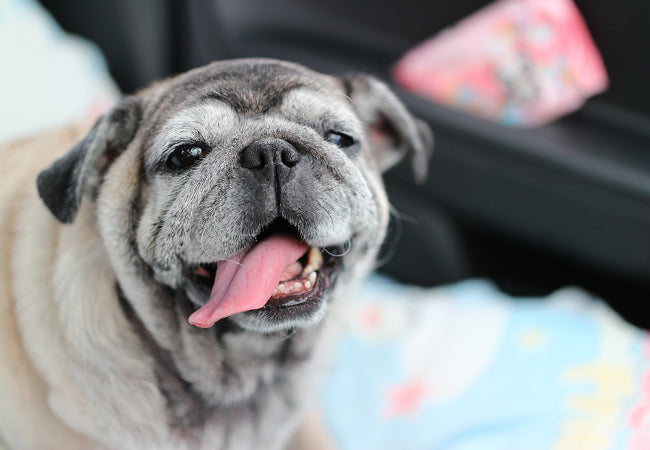Dog Panting at Night 2025: What’s Normal & When to Worry 🐶✨

In this article
Dog Panting at Night 2025: What’s Normal & When to Worry 🐶✨
By Dr. Duncan Houston BVSc
Your dog seems fine during the day—but as soon as the lights go off, they start panting, pacing, or acting restless. Night-time panting can be normal—or it can signal pain, anxiety, or an underlying medical issue.
I’m Dr. Duncan Houston, veterinarian and founder of Ask A Vet. Here’s what causes dogs to pant at night, when it’s a concern, and what you can do to help them (and yourself) sleep better.
🌙 When Panting at Night Is Normal
- After heavy exercise in the evening
- In warm or humid indoor environments
- Short-term excitement (new visitor, bedtime play)
🚩 When It Might Be a Problem
- Persistent panting for several nights in a row
- Panting paired with pacing, whining, or hiding
- Older dogs who suddenly start night panting
- Panting that isn’t explained by heat or exertion
🔍 Causes of Night-Time Panting
1. Anxiety or Stress
- Separation anxiety when you go to bed
- Storms, fireworks, or nighttime noises
- Changes in the environment, like moving or traveling
2. Pain or Discomfort
- Arthritis (especially in senior dogs)
- Abdominal pain, dental issues, or hidden injuries
3. Heart or Lung Disease
- Difficulty breathing when lying down
- May be accompanied by coughing or exercise intolerance
4. Cognitive Dysfunction (Doggy Dementia)
- Seen in older dogs with disrupted sleep-wake cycles
- Pacing, panting, whining, or seeming “lost” at night
5. Hormonal Conditions
- Cushing’s disease (common in middle-aged to senior dogs)
- Symptoms include panting, hunger, thirst, and a pot-belly appearance
🛠️ What You Can Try at Home
- Cool down the sleeping area (fan, AC, raised cooling bed)
- Provide a consistent nighttime routine
- Use calming aids (Adaptil diffuser, thunder shirt, calming music)
- Gently check for signs of pain when handling legs, belly, mouth
💊 When to See a Vet
- Panting is frequent, worsening, or paired with other symptoms (vomiting, weight loss, weakness)
- Your dog has never panted at night before
- You're unsure whether it's anxiety or a medical issue
🧪 What a Vet Might Check
- Full physical exam with focus on joints, heart, and lungs
- Bloodwork (check for pain markers, cortisol levels, organ function)
- X-rays for arthritis, heart, or lung problems
🔗 Helpful Tools from Ask A Vet
- Explorer Harness – Helps manage older dogs with arthritis during bedtime walks
- Ask A Vet – Track night-time panting patterns, upload videos, and get expert advice
📋 Summary Excerpt
Dogs who pant at night may be anxious, hot, or in pain. A vet explains how to tell the difference and what you can do to help them sleep better and breathe easier.
❓ FAQs
-
Q: Why is my dog panting at night but not during the day?
A: Could be due to anxiety, pain when lying down, or disrupted sleep. If it’s new, get it checked. -
Q: Should I give my dog water when they pant at night?
A: Yes, ensure access to cool water. But excessive thirst may also be a symptom to monitor. -
Q: Can I give my dog calming treats or melatonin?
A: Some calming supplements can help, but always ask your vet first for safe dosing and brand recommendations.






